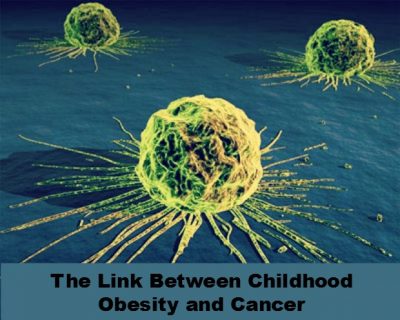Childhood obesity has been a topic for some years now in the United States. Doctors and researchers have spent hours collecting and reviewing data on the effects of obesity in children. Despite efforts to get kids more active and to make healthier dietary choices, childhood obesity is on the rise. Also on the rise is cancer in young adults.
Some types of cancers, generally seen in people over 50, are now being found more often in younger adults. Of the 20 most common cancers in the United States, a recent study found that nine are occurring in young adults. Experts generally agree that 13 cancers have clear ties to obesity. The nine that are increasing in younger people are actually 9 of the 13 linked to obesity. The nine cancers, and the percentage of new cases in people from 20 to 44, include:
- Thyroid cancer — 23.9 percent,
- Meningioma (cancer in the lining of the brain and spinal cord) — 16.8 percent,
- Ovarian cancer — 10.6 percent,
- Breast cancer — 10.5 percent,
- Kidney cancer — 7.8 percent,
- Endometrial cancer — 7.3 percent,
- Gastric cardia (cancer at the top of the stomach) — 6.2 percent,
- Colon and rectal cancer — 5.8 percent,
- Liver cancer — 2.5 percent.
This new study does not prove that childhood obesity causes cancer; however. the findings do emphasize the critical need for obesity prevention, especially when we are seeing a rise in both childhood obesity and obesity related cancers in younger adults (over 140,000/year). This is a big deal, according to the author of the study, Dr. Nathan Berger, director of the Case Western Reserve University Center for Science, Health and Society, in Cleveland, OH, “Scientists have known for some time that obesity increases cancer risk, and when obese people get cancer, they’re more likely to have a worse prognosis. And now it appears that obesity accelerates the development of cancer.”
are seeing a rise in both childhood obesity and obesity related cancers in younger adults (over 140,000/year). This is a big deal, according to the author of the study, Dr. Nathan Berger, director of the Case Western Reserve University Center for Science, Health and Society, in Cleveland, OH, “Scientists have known for some time that obesity increases cancer risk, and when obese people get cancer, they’re more likely to have a worse prognosis. And now it appears that obesity accelerates the development of cancer.”
It is not clear exactly how obesity might increase cancer risk. Researchers agree that there is much more collecting of data and analysis that must be done. Most also agree that obesity is a significant factor. Boston oncologist Dr. Jennifer Ligibel said this study is a “really interesting first look at the incidence of obesity and cancer risk in young adults, but there’s still a lot of work to be done.” She went on to note, “Obesity causes higher levels of inflammation. It also causes higher levels of insulin and other growth hormones. Obesity leads to higher levels of sex hormones. Also, there are related factors, including diet. There’s a lot we need to learn,”.

The study looked at 100 publications worldwide, with data reaching back more than four decades. As a result of this study, researchers and professionals agree further study is needed to determine the effects of weight loss, in childhood or adulthood, on cancer cases. Berger related this aspect of further research to that of smoking and cancer risk. When people quit smoking, their risk of cancer drops dramatically, but never completely disappears. He pointed out in his review that even though the risk might not go away completely, it’s still important to try to lose weight. He said, “Cutting down obesity impacts cancer risk, as well as the risk of diabetes and heart disease. Losing weight helps,”. Ligibel agreed, citing studies that showed the risk of cancer was cut by half for people who’ve had weight-loss surgery.
and professionals agree further study is needed to determine the effects of weight loss, in childhood or adulthood, on cancer cases. Berger related this aspect of further research to that of smoking and cancer risk. When people quit smoking, their risk of cancer drops dramatically, but never completely disappears. He pointed out in his review that even though the risk might not go away completely, it’s still important to try to lose weight. He said, “Cutting down obesity impacts cancer risk, as well as the risk of diabetes and heart disease. Losing weight helps,”. Ligibel agreed, citing studies that showed the risk of cancer was cut by half for people who’ve had weight-loss surgery.
The Bariatric Center of Kansas City is constantly following stories, studies, reviews and reports on the effects of obesity and weight loss. We are available to answer your questions and concerns as well.










